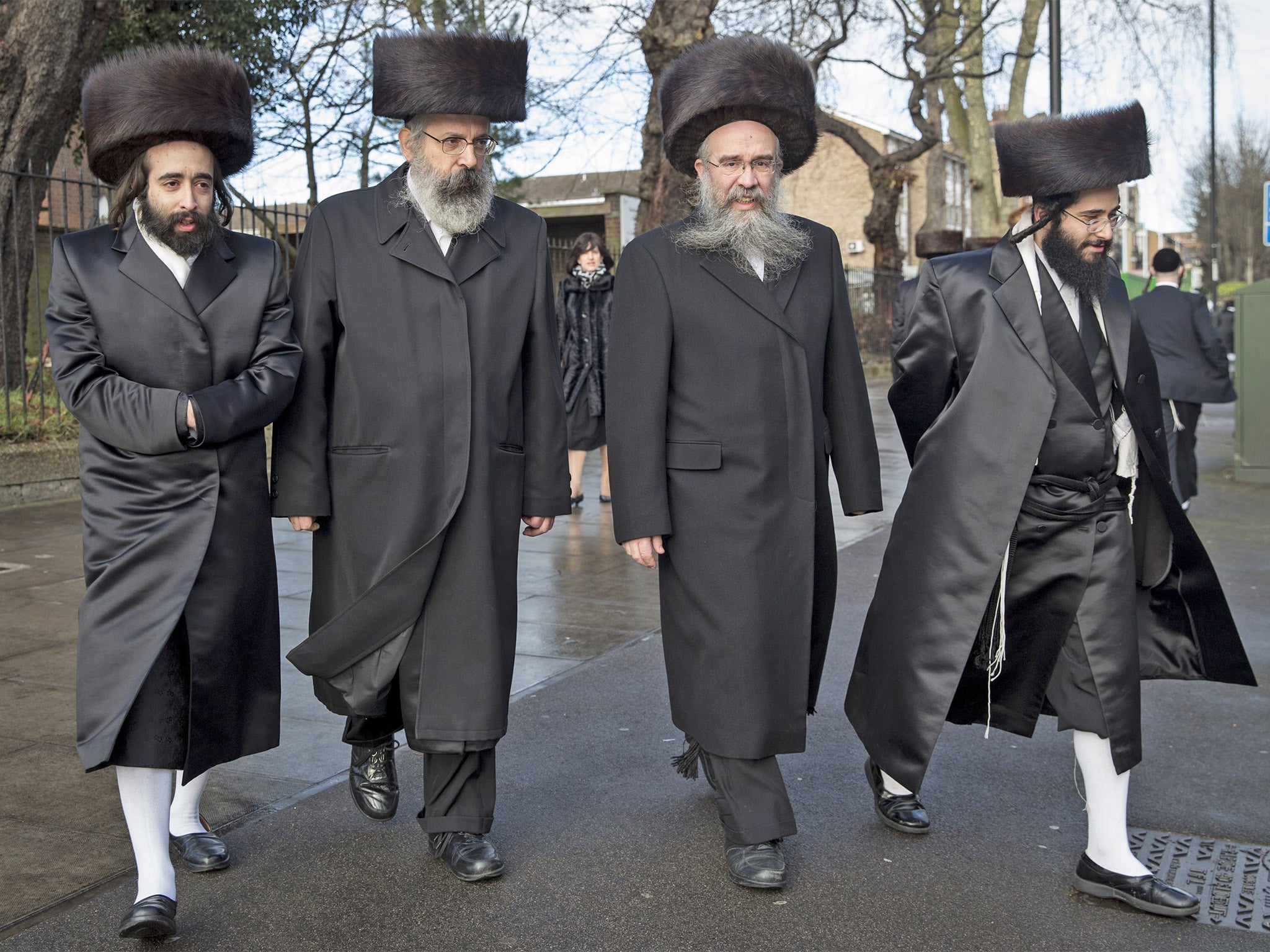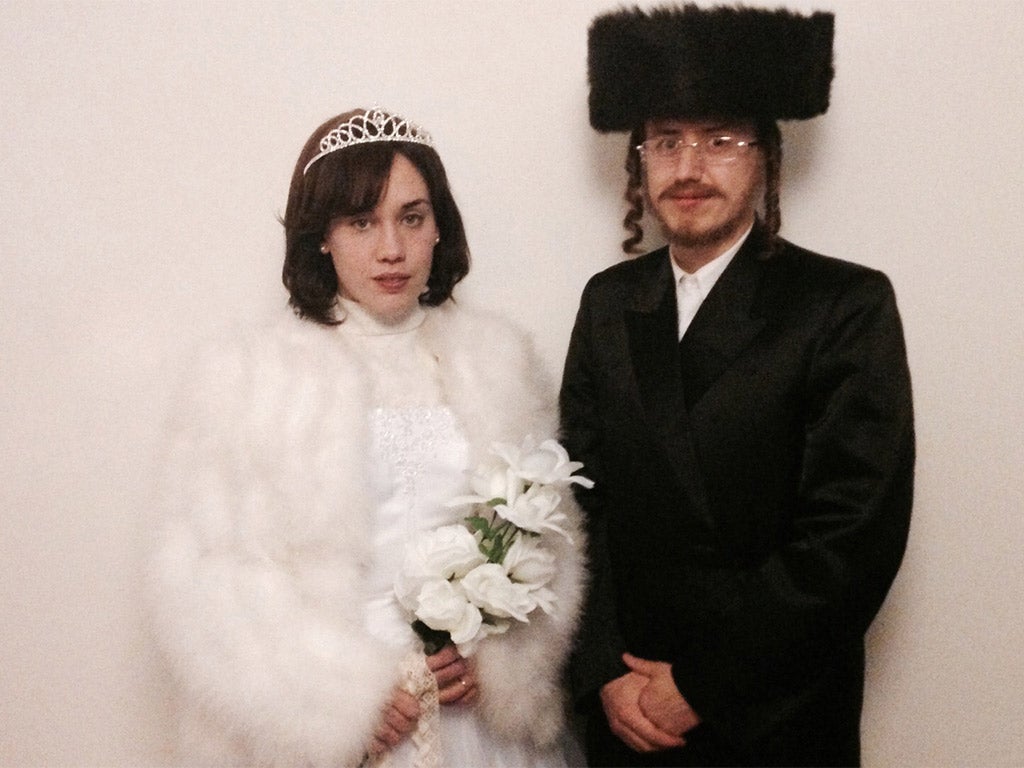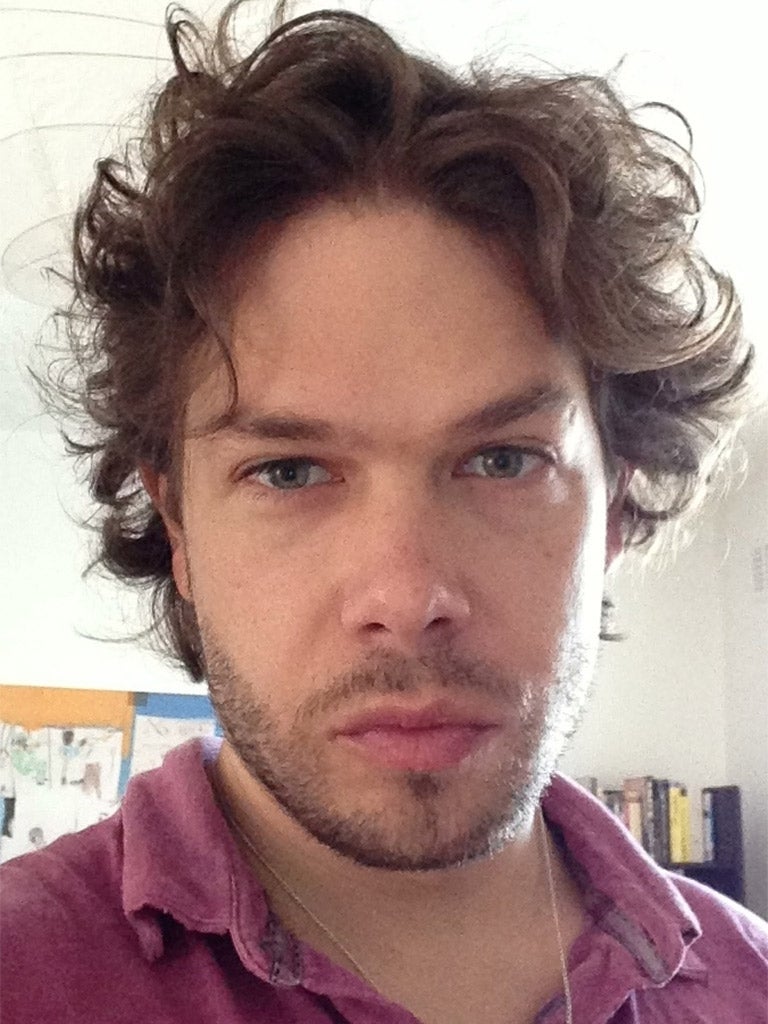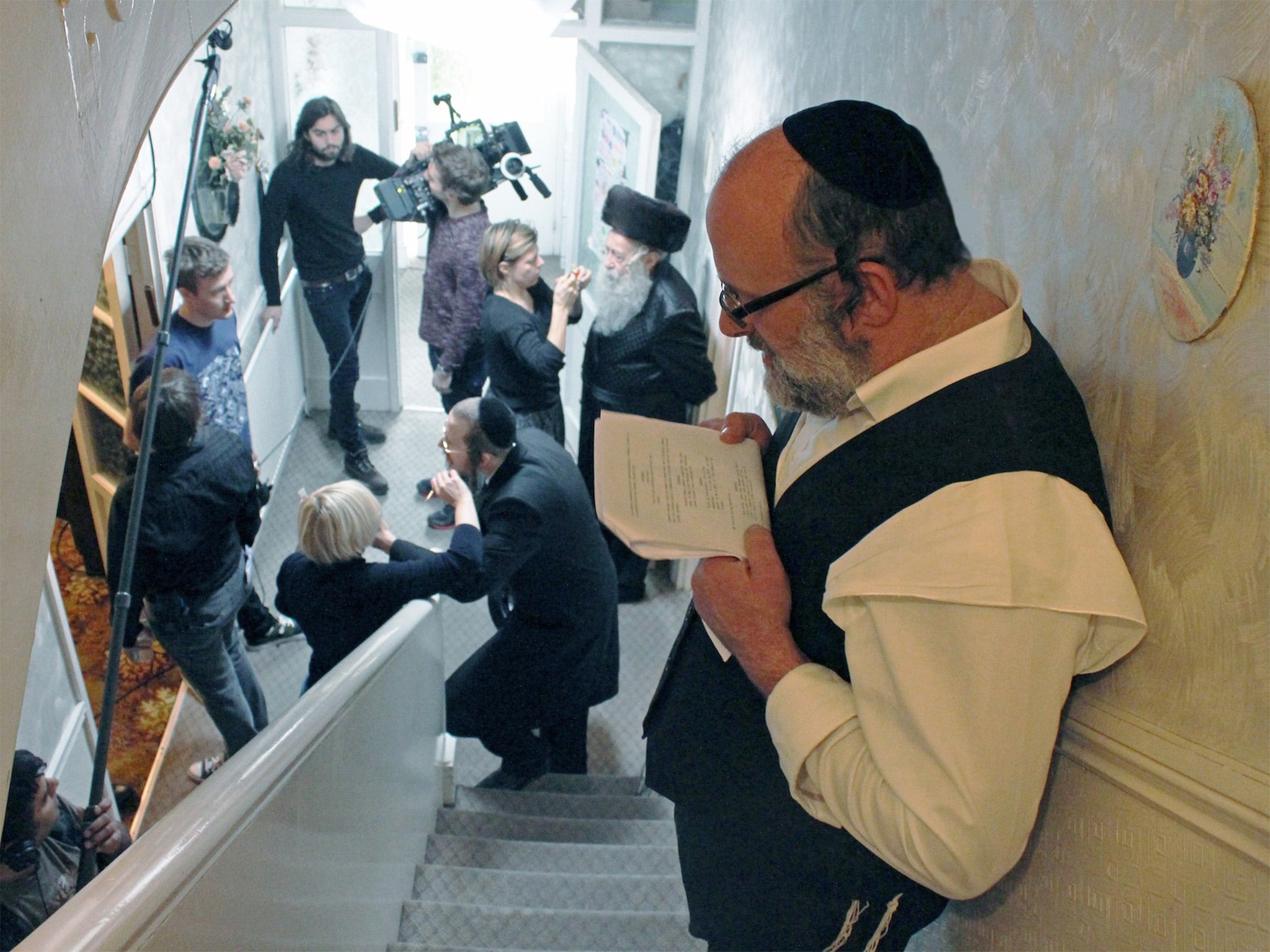SAMUEL-613: How film-maker Billy Lumby gained access to Stamford Hill's Hasidic community
The ultra-orthodox Jews of Stamford Hill do not take kindly to strangers, as Etan Smallman reports

Billy Lumby is somewhat on edge. This is the writer and director's first face-to-face interview and the self-confessed "control freak" isn't used to putting his story in someone else's hands. His worst fear? "A headline saying something like: 'Non-Jewish film-maker makes anti‑Semitic film.'"
He needn't be so worried; his moving 15-minute creation, SAMUEL-613, is complex and sensitive – and has just been nominated for a Bafta in the short-film category.
It all started when Lumby moved into the borders of Stamford Hill – the north London enclave inhabited by about 30,000 Hasidic Jews, the largest concentration in Europe. In this pocket of Hackney, ultra-Orthodox adherents to their faith, whose every daily act is dictated by 613 biblical commandments, live cheek by jowl with urban hipsters.
Lumby was electrified by the culture clash, by the sight of the men in their payos (sidecurls), fur hats and knee-high white socks and by the sound of them chatting to each other energetically in Yiddish as they made their way to synagogue. He decided instantly that he had to make a film. There was only one problem: he isn't Hasidic – or even Jewish. "I knew I was going into the unknown," he says as he sits in a trendy café in nearby Dalston. "But it was too exciting for me to resist."
The result is the first fictional film to be shot in Stamford Hill. Lumby tells the story of 23-year-old Shmilu (or samuel-613 as he is known on the illicit dating profile he updates on his laptop while hidden under the covers), who is seen pushing against the suffocating confines of Hasidic life. When he goes to buy a copy of the Auto Trader from the newsagent, the rabbi has reported it to his father before he even arrives home (Shmilu also returns with a porn mag tucked into his trouser leg). After an explosive row at the shabbat table, he shaves his hair and beard and moves into a council flat, where he gorges on bacon, arranges a date from hell and experiments with alcohol and drugs.
The scenes were inspired by real-life stories from young people who have left Stamford Hill and are now "off the derech" (OTD), derech being Hebrew for path. They face an uphill struggle to learn about a mainstream culture completely alien to them, and to maintain contact with parents and often children, while being ostracised by much of the community.
A society usually hermetically sealed from the outside has been increasingly in the headlines of late: last year for a school's ban on mothers driving; last week for an illegal school that doesn't teach English, which has been closed down after 40 years.
Lumby made herculean efforts to immerse himself in this "vibrant and culturally rich place". As well as cultivating contacts on Facebook – both OTD youngsters and those still inside – he watched every film and read every book he could lay his hands on. He even began learning a bit of Yiddish. On several occasions, he also – much to his mortification as he retells the stories – went "undercover".

He attended a Friday night meal, at which he said he was Jewish, something he now bitterly regrets (in part because he has since realised that the residents' respective willingness and unwillingness to help had not a jot to do with his religion).

Watch Apple TV+ free for 7 day
New subscribers only. £9.99/mo. after free trial. Plan auto-renews until cancelled.
ADVERTISEMENT. If you sign up to this service we will earn commission. This revenue helps to fund journalism across The Independent.

Watch Apple TV+ free for 7 day
New subscribers only. £9.99/mo. after free trial. Plan auto-renews until cancelled.
ADVERTISEMENT. If you sign up to this service we will earn commission. This revenue helps to fund journalism across The Independent.
On one occasion, he explored London wearing a kippah (skull cap). When he returned to his east London neighbourhood, he forgot about his head covering and wondered why he was getting a funny look from the man in the cafe when he gave his order for a bacon sandwich.
He was also tipped off about a huge rally at a stadium where Hasidic communities from all over Europe were to discuss what to do about the threat posed by the internet. Deciding that he might be able to pass, with his hipster/Hasidic curly hair and beard, if he wore a kippah, white shirt and black trousers, he walked up to a house where he was told he could purchase a ticket ("they obviously don't sell them online").

"There were five guys sitting there and they were like: 'Yeah sure, no problem. Er, who's your rabbi, by the way?' It was a question I was totally unprepared for – so I said, 'Oh, I'm between rabbis at the moment.' They sussed me out and, red-faced, I had to just walk out of there."
The first advert he tried to place in a Hasidic newspaper, searching for a family happy to have their home used for filming, was rejected at the last minute. When he eventually found a location, it still wasn't plain sailing. Four burly police officers kicked the back door down to tackle what they thought were intruders (the neighbours had seen non-Hasids entering the home and assumed a burglary was under way).
On the street, they were also apprehended, this time by protective residents unaware that the young man being followed by a camera was, in fact, the lead actor, Theo Barklem-Biggs, a gentile in costume. Lumby was delighted – seeing it as proof that his investment in authentic‑looking beards and payos had paid off. "Good hair and make up is really not cheap."
The director is also proud as punch that he had real people speaking Yiddish in the film, a language and culture that was thriving across Europe pre-Holocaust. He had initially wanted the cast to be entirely composed of non-professional actors from Stamford Hill. In the end, he had to settle for just three, including Samuel Leibowitz, who plays the father, among a mainly Jewish cast. Leibowitz is no stranger to the camera, having appeared in a BBC documentary back in 2008 showing his re-entry into the community after serving multiple sentences for international drug-smuggling.

Lumby, who is now working on his first feature film, about schizophrenia in Hackney, while paying off the interest on the huge bank loan he took out to fund SAMUEL-613, says his mission is to make "stylish, arty films about social issues". Viewers may assume he has no connection with the lead character in this work, but they would be mistaken. "Because I realised that if I was going to make a film that was in any way true, I would have to write it in a partly autobiographical way – channelling my own experiences in terms of using online dating, of when I was younger questioning my identity, mental health issues, experiencing depression, maybe sometimes feeling like an outsider."
However, no matter how personal the plot or how much research Lumby conducted, he readily accepts that his film could never be 100 per cent authentic. "The Haredi community is private, so they don't want films to be made about them that are shown around the world."
This leaves it to those who have left the community, those on the fringes or those who are merely interested outsiders. "So in that sense they're almost never going to be happy with how they're represented because they're not representing themselves," he says.
'SAMUEL-613' is free to watch at ukjewishfilm.org/samuel-613
Join our commenting forum
Join thought-provoking conversations, follow other Independent readers and see their replies
Comments